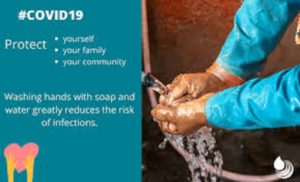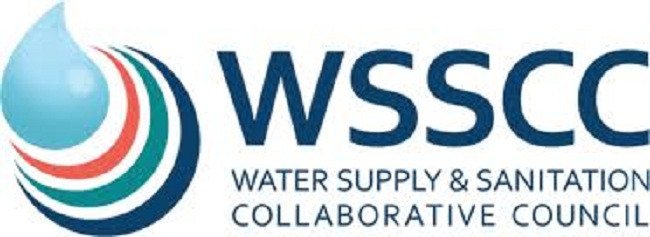World Water Day 2020, An Opportunity To Fight COVID-19, Says WSSCC Nigeria
The Water Supply and Sanitation Collaborative Council (WSSCC), Nigeria, has said that the World Water Day 2020 presents a unique opportunity for every one of in the country to contribute their part in the fight against COVID-19 by keeping safe hands and protecting themselves and loved ones against the pandemic.
The World Water Day is commemorated on the 22nd of March every year, not only to focus on the importance on water but also as a reminder of the inadequacy of water in the lives of billions of persons across the world.
“World Water Day 2020 is about water and climate change – and how the two are inextricably linked. Adapting to the water effects of climate change will protect health and save lives. Using water more efficiently will reduce greenhouse gases. We cannot afford to wait. Everyone has a role to play,” said UNWater.
The WSSCC, which has a branch in Nigeria, is a global, multi-stakeholder membership and partnership organisation that works with poor people, organisations, governments and local entrepreneurs to improve sanitation and hygiene at scale.
“We must also ensure to protect the environment and millions of disadvantaged persons in our communities – by curbing our movement and social contact,” according to the National Coordinator, WSSCC Nigeria, Ms. Elizabeth N. Jeiyol in a statement to commemorate WWD, last Sunday.
“We must create awareness and promote hand hygiene in order to contain the pandemic and many other infectious diseases. We must encourage people to wash their hands regularly with plenty of soap and water or alcohol-based sanitizers, and most importantly follow the guidelines of experts in helping to flatten the curve of this pandemic that has crippled the global economy.
Water and climate change must remain at the heart of every discourse – if we truly want to sustain this planet and protect it for posterity,” the statement said.
According to global water statistics, over two billion people are living without access to safe water – which critically underlines the need for a global action against the water crisis.
The core focus of the World Water Day is to support the achievement of SDG 6: water and sanitation for all by 2030; however, this year’s theme focuses on ‘water and sanitation’ to highlight the interrelatedness of the two critical aspects of our sustenance on earth and underline the global adversity of the water and climate change. This year’s theme encapsulates the need for a collective action on water and climate change for the sustenance of the human race. In line with global water and climate change goals, we cannot afford to wait any longer; and we must streamline sustainable, affordable and scalable water and sanitation solutions to solve our problems on this beautiful planet.
As the global population grows, so does the demand for water, which depletes natural resources and damages the environment in many places. Solutions include protecting carbon sinks such as oceans and wetlands, adopting climate-smart agricultural techniques, and increasing the safe reuse of wastewater.
According to the UN, “Water is our most precious resource – we must use it more responsibly. We must balance all of society’s water needs while ensuring the poorest people don’t get left behind.”
…CSE: Clean Water is Key to Fighting Coronavirus
Also in commemoration of the World Water Day 2020, the Centre for Science and Environment, (CSE) has said that clean water is the key to fighting Coronavirus.
According to the Director-General of CSE, Sunita Narain “On the occasion of World Water Day, and at a time when the entire world is fighting with its backs to the wall against the coronavirus pandemic, we believe it is appropriate to ask a very pertinent question. Do we have enough access to clean and safe water, considering the fact that hand-washing has emerged as one of the most effective ways of controlling the spread of this virus?” says.
According to the World Health Organization (WHO), hand-washing – in addition to social distancing — is the easiest and most effective way of preventing transmission of the new virus. In India, a campaign has been kick-started on the subject, with celebrities roped in to increase awareness on washing hands.
But there remain genuine concerns that nations in the Global South – consisting of low and middle-income countries in Africa, Latin America, the Caribbean and Asia, including India – may not have adequate access to clean water necessary for hand-washing.
2014 WHO report – Preventing Diarrhoea through Better Water, Sanitation and Hygiene — says around 1.9 billion people in the world use non-potable or faecally-contaminated water for drinking, cleaning and other related activities. As per the Indian government’s own submission in the Lok Sabha in 2018, diarrhoea is the leading killer among water-borne diseases, causing about 60 per cent of all deaths.
Hand-washing using clean water and soap, therefore, is a critical preventive measure in the current scenario. CSE has analysed what this means in the Indian context. According to Suresh Rohilla, senior director-water and wastewater management, CSE: “Going by the WHO’s prescribed measures, to get a germs-free hand, a person takes 30-40seconds for one proper hand-wash, using approximately 4 litres of water with the tap flowing consistently (and 2 litres when the tap closed while scrubbing and rinsing). Assuming each person in these days of COVID-19 needs to wash hands at least 10 times in a day, a family of five would need 100-200 litres every day just for hand-washing!”
And, even assuming that one does not leave the tap running when one rubs hands with soap, the water consumption will be high, but necessary.

Adds Narain: “There is another concern – the increased use of water will naturally lead to generation of more wastewater. Keeping in mind the fact that 85-90 per cent of all water used in a household gets discharged as wastewater, the more water we use, the more sewage we discharge. This, when we know that the bulk of wastewater is not intercepted, nor treated or cleaned. This means that we are adding to the pollution challenge of our waterbodies. It will mean higher cost to clean this water for drinking and it will mean more dirty water, which in turn, means more bad health.”
But this is why we must make the connection on this World Water Day – access to clean water is our fundamental right, says Narain. The good news is that water is a replenishable resource. We need to harvest every drop of water, recharge groundwater, protect waterbodies and then also ensure that every litre of wastewater is treated and cleaned. “We must ensure that we return water – and not waste — to our rivers,” says Narain.
According to Narain, this decade is our make-or-break decade – on one hand, we will see the revenge of nature as climate change impacts get aggravated, which means more variable rainfall and more droughts and floods. On the other hand, we will have more water scarcity and more pollution if we do not get our water management right, which in turn will add to economic distress and livelihood insecurity.
“But we can get it right. This is what we must remember,” says Narain. “We need to be waterwise; changing diets so that crops we eat are water-prudent; and invest in water efficiency in homes, factories and fields. Today, we know what to do and now we must make the management of this resource our single biggest obsession.”
Narain points out that the coronavirus pandemic teaches us that we are as weak as the weakest link in the chain – the contagion needs us to ensure that everybody has access to public health so that nobody is left out and nobody can be the carrier of the virus. “Providing access to clean water is the biggest preventive health measure we can take – and this is why, on World Water Day 2020, we must make this connection. For all our sakes,” she adds.




